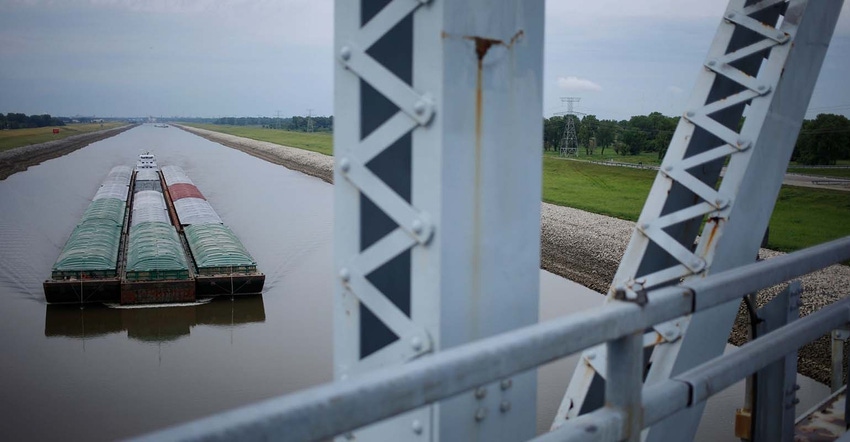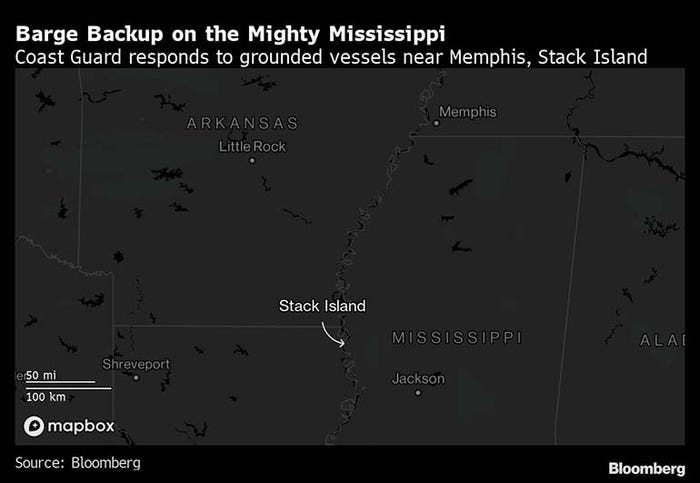Barges unable to make deliveries as Mississippi water levels reach historic low

By Michael Hirtzer, Elizabeth Elkin and Joe Deaux, with assistance from Diego Lasarte
A logjam of more than 100 ships, tugboats and their convoys of barges in the shrinking Mississippi River is threatening to grind trade of grains, fertilizer, metals and petroleum to a halt.
The largest U.S. barge operator warned customers it won’t be able to make good on deliveries. Ingram Barge Company declared force majeure in a letter to customers due to “near-historic” low water conditions on the Mississippi, the top route to get U.S. grains and soybeans to the world market.
Drought has dwindled water levels along the biggest U.S. waterway by so much that vessels are running aground. The Coast Guard is responding to grounded vessels in at least two places, near Stack Island in Louisiana and upriver near Memphis, according to a statement.
Covered barges full of grain and soy float from U.S. farm country to terminals in the Gulf of Mexico, while crude oil, refined products and imported steel also travel through sections of the waterway. Some 60% of all grain exported from the U.S. is shipped on the Mississippi River through the Port of New Orleans and the Port of South Louisiana, according to the National Park Service.
The logjam is coming at the worst time as the soybean and corn harvests are each about one-fifth complete and supplies will start piling up. The river woes, coupled with a soaring dollar, are destroying demand for U.S. supplies even with Russia’s invasion of Ukraine still impeding shipments in the Black Sea.

“We’re losing demand because of reduced export capacity,” Susan David, grain analyst in St. Louis, said by phone. “We’re creating piles everywhere.”
The Coast Guard said there was a queue of 122 vessels at Stack Island and 15 vessels at Memphis. Due to increased groundings, the number of vessels in tow is being restricted.
Meanwhile, any snags in fertilizer shipments -- which farmers rely on to plant crops for next year -- are happening as nutrients to grow food have soared and as Hurricane Ian temporarily shut production at a Mosaic Co. fertilizer plant in Florida.
“The Mississippi River is vital to the fertilizer transportation network,” said Alexis Maxwell, an analyst at Bloomberg Intelligence.
A peaking La Nina is limiting storms coming in from the southwest that would replenish rivers, and any significant relief is unlikely through the first 10 days of November, according to World Weather Inc. president Drew Lerner.
“I don’t have a major storm coming up for the balance of the month,” Lerner said. “I’m a little pessimistic and not feeling good about the situation.”
© 2022 Bloomberg L.P.
About the Author(s)
You May Also Like



